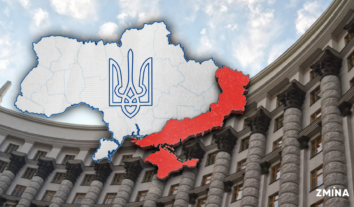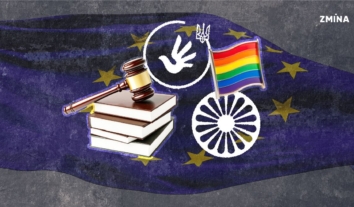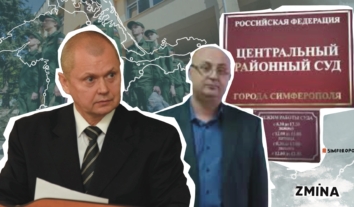Hurry-scurry counterpropaganda: Should Russian books be banned in Ukraine?
In July this year, Ukrainian State Television and Radio Committee appealed to the State Fiscal Service of Ukraine with a request to include the anti-Ukrainian books in the list of the goods, which are prohibited from being imported into the customs territory of Ukraine.
The Human Rights Information Centre correspondents find out whether such a step is reasonable amidst fighting in eastern Ukraine.
Blacklist of books
First Deputy Head of the State Television and Radio Committee Bohdan Chervak commented on the decision as follows, “These measures are dictated by the need to prevent the use of information warfare and disinformation methods by the Russian Federation against the citizens of Ukraine, spread of ideology of fascism, xenophobia, and separatism.”
According to the official, the list of anti-Ukrainian books was made after analyzing the book market and the printed products that have already entered or may enter the Ukrainian retail chain from the Russian Federation.
The list includes 38 books by such infamous authors and well-known Ukrainophobes as Eduard Limonov, Sergei Dorenko, Alexander Dugin and others. In general, the titles of these books speak for themselves: Forward to the USSR, Superman Speaks Russian, Independent Ukraine: the collapse of the project, Battlefield Ukraine. Broken Trident.
One of the authors, Nikolai Starikov, whose works have also been put on the list, even argues that such a ban “is intended to conceal the truth about the coup in Ukraine and the role of the United States in it.”
An interesting thing is that, despite the blacklist, one can freely buy these books, for example in Kyiv.
Law conflicts
Media lawyer at the Institute for Regional Press Development Oleksandr Burmahyn notes that the State Committee’s officials actually banned nothing, “As the letter’s wording indicates, they appealed to the State Fiscal Service to include certain publications in the list of goods prohibited from being imported into the customs territory of Ukraine. That is, they defined the list of anti-Ukrainian books as they see fit and shift responsibility for imposition of restrictions on their distribution in the territory of Ukraine on the fiscal service.”
The expert believes that the Fiscal Service is unlikely dare to fulfill this request.
Restrictions as additional PR stunt?
Human rights activist Maksym Butkevych stresses that the main question is why the restrictions have been applied. “The restrictions are possible, they are consistently applied by different countries for different purposes. But if we still want to live not in an authoritarian state, based on the arbitrariness of officials, but in truly democratic and legal one, every restriction must be reasoned and it should be proportionate. In addition, the citizens should have a chance to subject it to critical analysis and, if necessary, to appeal against it in fair, impartial court.”
The expert also points out that such restrictions only create additional PR stunt and, accordingly, the additional demand, though usually it refers to literature of dubious quality.
What bans are imposed in Russia?
Aleksandr Verkhovsky is director of the Sova Russian Information and Analytical Center, dealing with such phenomena as radical nationalism, hate crime, hate speech, measures against xenophobia, freedom of conscience, and abuse in fight against extremism. Verkhovsky notes that the ban on publications in Russia does not mean an outright ban on its spread on the Internet.
At the same time, he notes that ineffectiveness of such bans does not prompt the authorities to refuse them, but, on the contrary, leads to the greater promotion of this mechanism.
The experts fear that this could happen in Ukraine as well, if the officials do not stop in time.








